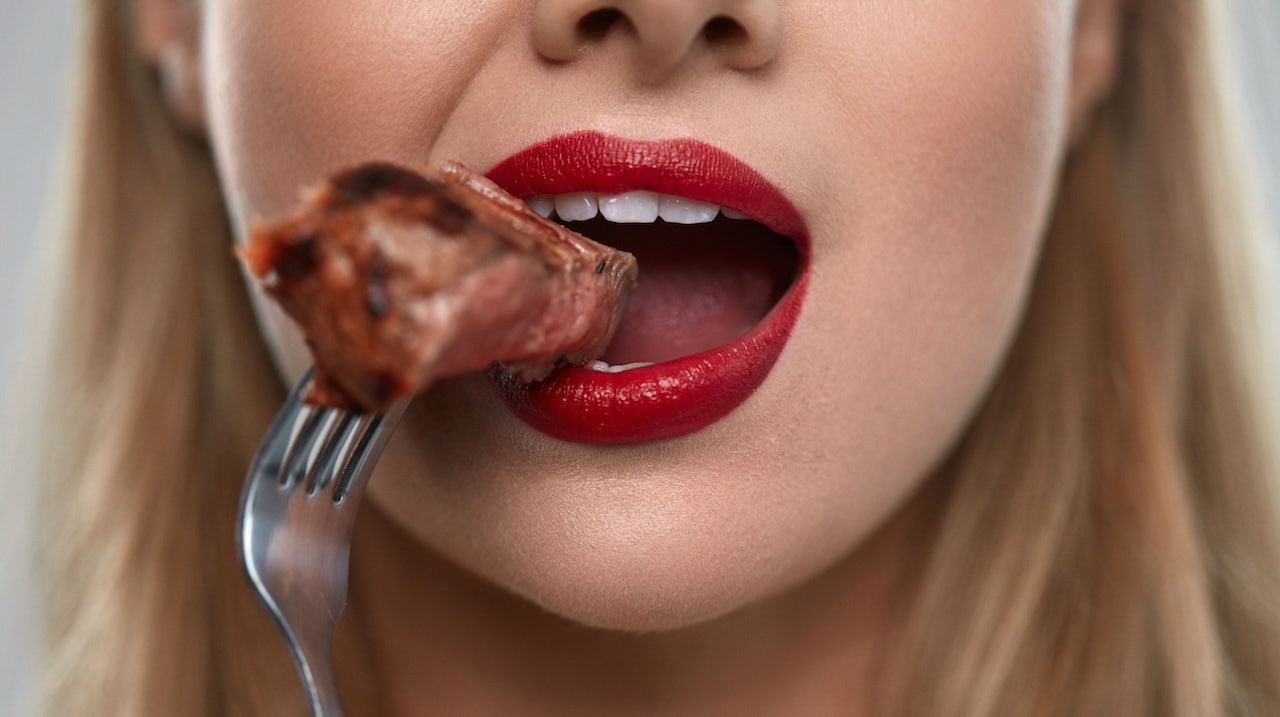‘The carnivore diet cured my lifelong eating disorder’

After suffering from a lifelong eating disorder that almost killed her, an Ohio woman says switching to a carnivore diet saved her life.
Valerie Smith, 54, struggled for decades with multiple physical and mental health conditions, including anorexia. At one point, Smith, who is 5’9″, was down to 70 pounds and a BMI of 11. She was hospitalized and kept alive by feeding tubes several times, she told Fox News Digital.
In 2017, after following a strict plant-based diet for most of her life, she slowly began transitioning to an animal-based ketogenic diet, which she credits for healing her mind and body. Prior to switching to animal foods, Smith tried a myriad of other treatments for her anorexia and other disorders.
“I was actively in treatment for my entire life,” she said during an interview. “I was seen by hospitals and medical doctors. I had over a dozen psychiatrists. I was on a cocktail of different psychotic medications over the course of three or four decades.”
“The hospitals recommended a plant-based diet devoid of any animal protein,” Smith said. She stuck with their meal plans, but struggled to maintain a healthy weight and suffered digestive issues.
By the time Smith was 47, she was back down to 70 pounds, enduring fractures due to osteoporosis, and had undergone several surgeries for multiple organ prolapse. Her mental health was also at an all-time low.
“I was not going to survive another year,” she said. “I desperately needed to gain weight, but the mental illness was stopping me from gaining anything permanently.”
While doing research, Smith discovered some metabolic psychiatrists and learned about the benefits of the ketogenic diet. “I learned that animal foods and animal fats are a priority in the brain,” she said.
“There are more than 100 neurotransmitters in our brain, and most of them rely on the amino acid profile that’s in complete animal proteins,” Smith went on. “Our brain is not going to function correctly if we don’t have the building blocks of animal products.”
After 35 years of not consuming any animal foods, she decided to experiment with adding them back into her diet. Smith started slowly, with just one bite of meat per day. Each week, she added another bite. It took her eight weeks to get up to eating 8 ounces of meat.
At the three-month mark, she began seeing improvements, not necessarily in her weight, but in her mental health. “My depression and anxiety were lifting,” Smith said. “At that point, I had not gained any weight yet, so it was not weight gain that healed my brain, it was the ketogenic diet.”
As the months went on, Smith continued to look and feel healthier. After a year, she said, all anorexia symptoms were gone. “Even my body dysmorphia was gone, and I had no drive to starve whatsoever,” she said. “All the obsessive thoughts, the negative self-talk, the brain dysfunction, it was completely gone.”
“I was not fighting against myself anymore. It was effortless.”
Today, Smith consumes between 2 and 3 pounds of meat each day, primarily red meat, as well as eggs. She also occasionally eats chicken, pork, and wild-caught fish. Since starting her animal foods diet, Smith has gained 50 pounds of muscle. In eight years, she said she has not experienced any of the health issues that plagued her for decades.
“For me, this is about healing, and I feel that the ultimate healing for body and mind is with animal products in the diet.”
Dr. Georgia Ede, a Harvard-trained, board-certified psychiatrist specializing in nutritional and metabolic psychiatry, has often spoken about her support of the carnivore diet.
“In my clinical work, I have found well-formulated carnivore diets to be very helpful in stubborn cases of overeating disorders, such as binge-eating and food obsession,” she told Fox News Digital.
“Meat contains all the nutrients we need, in their most bioavailable forms, and without the antinutrients and defensive toxins naturally found in plant foods,” she went on.
Nick Norwitz, a Harvard medical student and researcher, recently completed a case study on three people who overcame eating disorders using the ketogenic diet. He also recently released a video in which he debunked eight myths surrounding the carnivore diet.
There is no “one size fits all” dietary solution, Norwitz said, adding that “context and nuance are essential.”
“However, I do feel the carnivore diet is misunderstood, and that red meat and animal-based foods often get unfairly scapegoated and thrown under the ‘big food bus,'” he told Fox News Digital.
Margot Rittenhouse, a licensed professional clinical counselor with Alsana in California, said it is “absolutely critical” that any diets or modalities used to treat eating disorders are backed by “extensive and consistent research.”
“While some research indicates that a ketogenic carnivore diet may be beneficial in treating anorexia nervosa, there is not a preponderance of evidentiary proof to indicate that this could currently be used as a viable treatment option,” she told Fox News Digital.
“Eating only animal proteins is not a complete diet by any means, as one would be consuming nearly exclusively saturated fats and protein,” she said.
Experts agree that those suffering from disordered eating should not attempt to treat the condition without professional help.
Tanya Freirich, a registered dietitian nutritionist in Charlotte, North Carolina, who practices as The Lupus Dietitian, said she does not recommend the carnivore diet as a means of treating disordered eating.
“Nuts, seeds, legumes, grains, fruits, and vegetables are an important part of a balanced diet and provide a multitude of important nutrients,” Freirich told Fox News Digital. “For optimal health, you also need the wide variety of vitamins and minerals found in other food groups, as well as fiber and carbohydrates.”
“Dieting in general, but especially with such a restrictive diet as the carnivore diet, is a factor that increases the risk of developing disordered eating,” she added.
Rittenhouse also cautioned against adopting any type of restrictive diet, which has been shown to create “harmful relationships to food.”
Experts agree that those suffering from disordered eating should not attempt to treat the condition without professional help.




